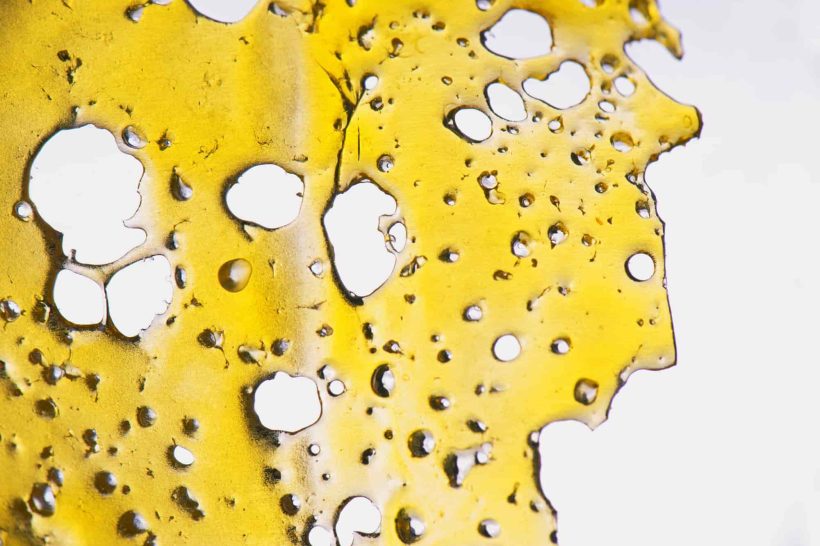You may have heard of 420, but have you heard of 710? It’s known as Oil Day or Dab Day among cannabis users. The marijuana holiday falls on July 10th and celebrates cannabis concentrates. But if you’re new to medical marijuana, you may not know much about this form of cannabis.
In honor of 710 Day, CannaMD is taking a closer look at cannabis concentrates and answering all the questions you might have!
The Origins of 710 Day
Rotated upside down, 710 spells “OIL” – a term used to describe potent cannabis concentrates like dabs and wax.
Naturally, 710 is celebrated on July 10th and dedicated celebrants wait until 7:10 to consume their favorite cannabis oil products. Because of this, High Times refers to 710 as “4/20’s younger sibling.”
As for the exact origins of 710 Day, Leafly pinpoints the holiday’s beginnings:
The concept of 710 traces its origin to a TinyChat chat room where rapper Taskrok was having a virtual dab session with some high-ranking members of the cannabis community back in 2010.
Concentrate Basics
Cannabis concentrates are products that contain extra-high levels of THC and other cannabinoids. These products are made by extracting trichomes (cannabis glands containing cannabinoids, terpenes, and more) from the cannabis plant.
Concentrates that include all cannabinoids and terpenes from the cannabis plant are called full-spectrum. Concentrates can also be refined to include only THC, CBD, or a combination of the two. These are called isolates.
According to Leafly:
The advantage of using a full-spectrum concentrate is that all active chemicals have a synergistic effect when combined — this is referred to as the “entourage effect.” Most believe using a full-spectrum concentrate will have a stronger medical impact than using an isolate.
Cannabis concentrates can be consumed in various ways, including:
- Vaping through an oil rig or vape pen
- Dabbing with a dab rig
- Eating cannabis-infused edibles
What Is Dabbing?
Dabbing is a method of consuming cannabis concentrates that involves a small amount of the concentrate being placed on a hot surface and then inhaled. The most popular way to dab is with an oil rig, a type of water pipe specifically designed for dabbing.
As Leafly explains:
The process of dabbing is extremely hot and flash vaporizes dabs in the range of 400-600°F.
While concentrates are most commonly consumed via dabbing, it’s important to remember that concentrates are usually more potent than other cannabis products – so patients should exercise caution when dabbing. According to a study from the Institute of Forensic Medicine at the University of Bern, dabbing results in a higher lung availability of THC. (For a comprehensive review of dabbing versus smoking research, see: New Study Shows Joints Waste 300 Percent More THC Than Dabs.)
What To Look For When Considering Concentrates
For the most part, consuming cannabis concentrates is perfectly safe. However, it’s important to consider a few key details when looking for a concentrate.
Some manufacturers use ethanol to extract cannabinoids from the cannabis plant, which can lead to a harsher experience, especially for elderly patients. Look for products made using supercritical carbon dioxide extraction methods for the healthiest experience.
A study published in Environmental Health Perspectives explains:
Supercritical carbon dioxide (CO2) extraction is a much safer method for deriving concentrates… This method employs CO2 in a fluid form as a solvent.
If you are looking for a cannabis concentrate in the form of a tincture, beware of the cutting agent used, especially if you have allergies. The most common cutting agents for cannabis tinctures are medium-chain triglycerides (MCT) oil and ethanol. MCT oil has been found to induce a stronger histamine response in people who have certain immune disorders.
As the Journal of Allergy and Clinical Immunology notes:
Our study suggests that dietary MCT may have a previously unappreciated effect on immune responses to dietary antigens, both on sensitization and anaphylaxis, by affecting antigen absorption and by promoting a Th2 bias.
Sometimes cutting agents and extraction methods are not clearly stated on the packaging, so it’s essential to ask your dispensary representative (or “budtender”) for the complete list of ingredients and extraction methods used for your concentrate. This way, you can ensure your body receives the maximum benefits and minimal side effects from your medical marijuana concentrate.
